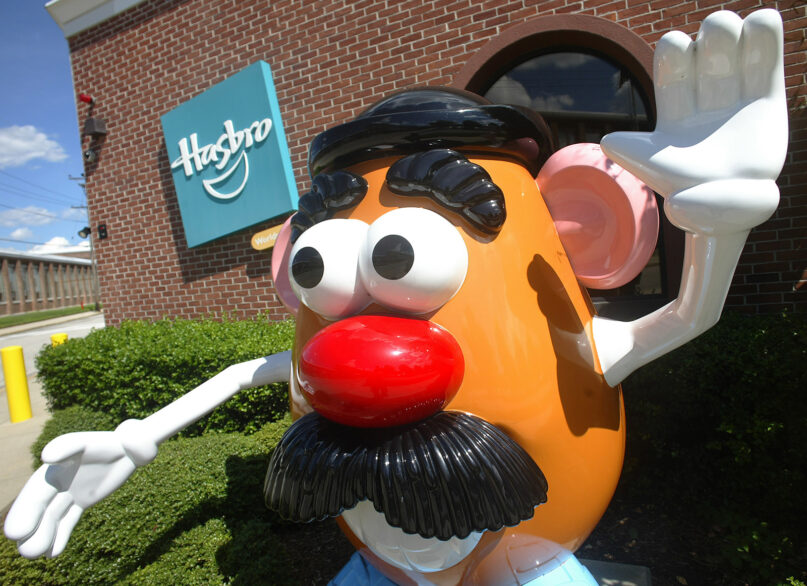(RNS) — Every now and then I wonder about the cultural historians who will have to — presumably straight-faced — write a history of the past few years in America.
A little over a year ago, I wrote a column for this very website about the death of Mr. Peanut: the monocle-sporting Planter’s Peanuts mascot (his death, it turned out, was greatly exaggerated). I thought at the time we’d reached the nadir of late modernity.
I was wrong. The latest cultural outcry concerns Mr. Potato Head.
The toy company Hasbro’s minor rebranding of Mr. Potato Head to the more gender-neutral Potato Head — in part to allow for a broader and more inclusive variety of Mr., Mrs. and gender-unspecified potato products — was swiftly greeted by Twittering conservatives as another Horseman of the Cultural Apocalypse: woke progressives so intent on abolishing the gender construct that not even a beloved children’s toy could be allowed to retain his title.
Mark Dice, a YouTube conspiracy theorist and pundit, complained that “Mr. Potato Head has been canceled.” Radio host Erick Erickson attributed the change to the demands of “Woke-o Haram,” punning on the African Islamist terrorist group Boko Haram, and Ben Shapiro joked that Mr. Potato Head might next identify as a squash.
After the initial outcry on Twitter, Hasbro was quick to emphasize that it was not, in fact, canceling Mr. Potato Head, tweeting: “While it was announced today that the POTATO HEAD brand name & logo are dropping the ‘MR.’ I yam proud to confirm that MR. & MRS. POTATO HEAD aren’t going anywhere and will remain MR. & MRS. POTATO HEAD.”
Inclusivity was part of the point, but the primary reason for the change seems to be Hasbro’s hope to expand the Potato Head franchise beyond Mr. and Mrs. to a whole universe of potato people. No doubt, they were happy for the publicity, bad and good: The LGBTQ advocacy group GLAAD praised the move, saying, “Hasbro is helping kids to simply see toys as toys, which encourages them to be their authentic selves outside of the pressures of traditional gender norms.”
Surreal as it may seem, the drama over Potato Head’s gender gets more surreal when we consider that the increasingly ridiculous narrative of “culture wars” is profitable. Profitable for Hasbro, as people are thinking (and talking) about Mr. Potato Head for the first time in decades. Profitable for the media ecosystem, which lit up with all the hot takes about how woke culture is killing childhood and about how representation in children’s toys is the first step into wider gender equality.
“Woke capitalism” — the mashup of corporate interests and social-justice language for the purposes of cornering a prestigious, progressive millennial market — is an established phenomenon. The culture wars have long since transformed from a battle of moral hunger on both sides into a clash of commodification. Our substacks, our cable and streaming shows, what tote bags we sport or where we shop for groceries have become our political and social identities.
The online culture war, with its manufactured “sides” (each producing publicity and clicks for the companies at its center), allow us to outsource our need for human connection, for moral certainty, for justice and ontological stability in this broken world.
In the same way that, for example, violent video games allow us to outsource and aestheticize our hunger for violence, the vicissitudes of the culture-wars machine allow us to outsource the fulfillment of our moral hunger: participating, via liking and retweeting, in a simulacrum of moral community.
The reimagining of Potato Head — and the outcry that comes along with it — speaks to the heart of what’s wrong with us all in 2021: We are so starved of spiritual imagination that we turn to our cultural products to tell us spiritual stories.
Our manufactured discourse, no less than an anthropomorphic potato, is a game of fantasy and pretend.






